A majority of businesses are using some form of marketing automation nowadays -- in fact, studies cite around 51% of businesses currently use the technology, and that number continues to grow.
According to a 2018 Forrester report, 55% of marketing decision-makers plan to increase their spending on technology, with one-fifth of the respondents expecting to increase by 10 percent or more.
All of which is to say -- if you're not using marketing automation software in 2019, you might want to reconsider.
Despite the necessity of automation software, it's a complicated space, full of different software solutions with various features, and use cases.
What is the best marketing automation software?
Some platforms only offer email actions, drip sequences, and CRM updates. Others may help with lead scoring, sales lead rotation, SMS, and more.
A more niche product may be better for SMB and B2C environments, but B2B and enterprise may need a platform with wider capability. Here are some key areas to consider as you evaluate marketing automation software products to choose the one that's right for you:
Ease of Use
Automation isn't a simple thing to implement as it is, so make sure the interface of the software will work with you, not against you. See if you can find screenshots of the UX so you can determine if it looks simple and easy to navigate.
Analytics and Reporting
You'll want to be able to measure the success of any drip campaigns you have running, so your automation software should be keeping track of the metrics that matter most to you.
In B2B and enterprise environments with many stakeholders, you may also need advanced reporting abilities such as personalized dashboards or automatic reporting via email.
Support
"I wonder if my software has the capability to..."
As you explore the benefits of marketing automation, you will end up thinking this one day. Automation can be technical, so look for providers that have robust knowledge bases, tutorials, and other customer support options.
Limitations
Some automation software platforms may limit the number of actions in a month or the database size you're allowed.
Going into any evaluation, know how many contacts you have, how many emails you send on average, and what you want the software to accomplish. This will prevent you from underestimating the cost of your automation software.
Pricing and Scalability
If automation's benefit can be summed up with one statement, it's this: It will make you more efficient so you can focus on the tasks you enjoy and that have the highest return. With that in mind, you'll want to evaluate price as you consider capability.
For SMBs and B2C organizations focusing primarily on email, a scaled-down system might be sufficient. However, with more advanced needs, enterprise (and thus higher ticket) software is more cost-efficient in the long run.
Be sure to choose a provider that's reasonably priced but can also grow with you as your needs change. After all, reducing bloated operations is critical to scaling effectively.
Integrations
How well does the marketing automation software play with your existing stack? Integrations allow you to manage data and get more from your tools.
Here, we've cultivated a list to help you sort through your options and feel confident choosing the best marketing solution for you and your team.
Best Marketing Automation Software
- HubSpot Marketing Automation
- ManyChat
- Omnisend
- Ontraport
- SendinBlue
- ActiveCampaign
- Prospect.io
- InfusionSoft
- Autopilot
- Marketo
- GetResponse
- Drip
- Mautic
1. HubSpot Marketing Automation
HubSpot's marketing automation functionality is one of the most powerful tools in this list in terms of features. It's also one of the most popular in terms of customer sentiment, occupying the upper right portion of the G2 Crowd quadrant:
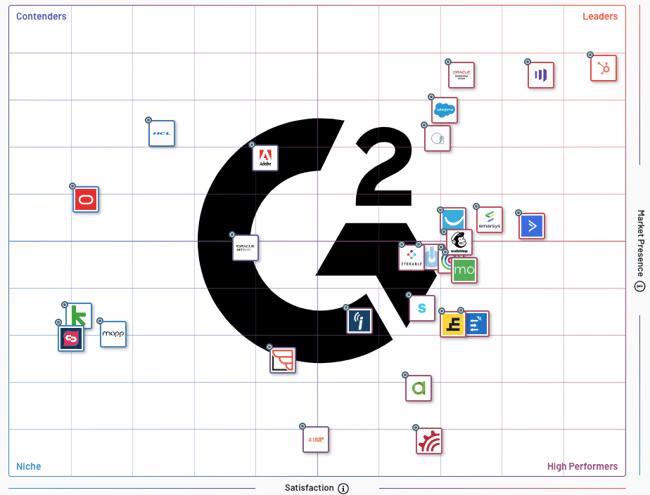
Of course, HubSpot has a full growth suite that includes sales software, marketing software, and support software, which all integrate automatically with HubSpot's CRM. The combination effect of having all of your data and growth activity in one place can unleash tons of creative automation possibilities that would be difficult or impossible if you use separate tools.
As a standalone, HubSpot's marketing automation functionality includes an easy-to-use visual board where you can craft simple or highly sophisticated conditional workflows:
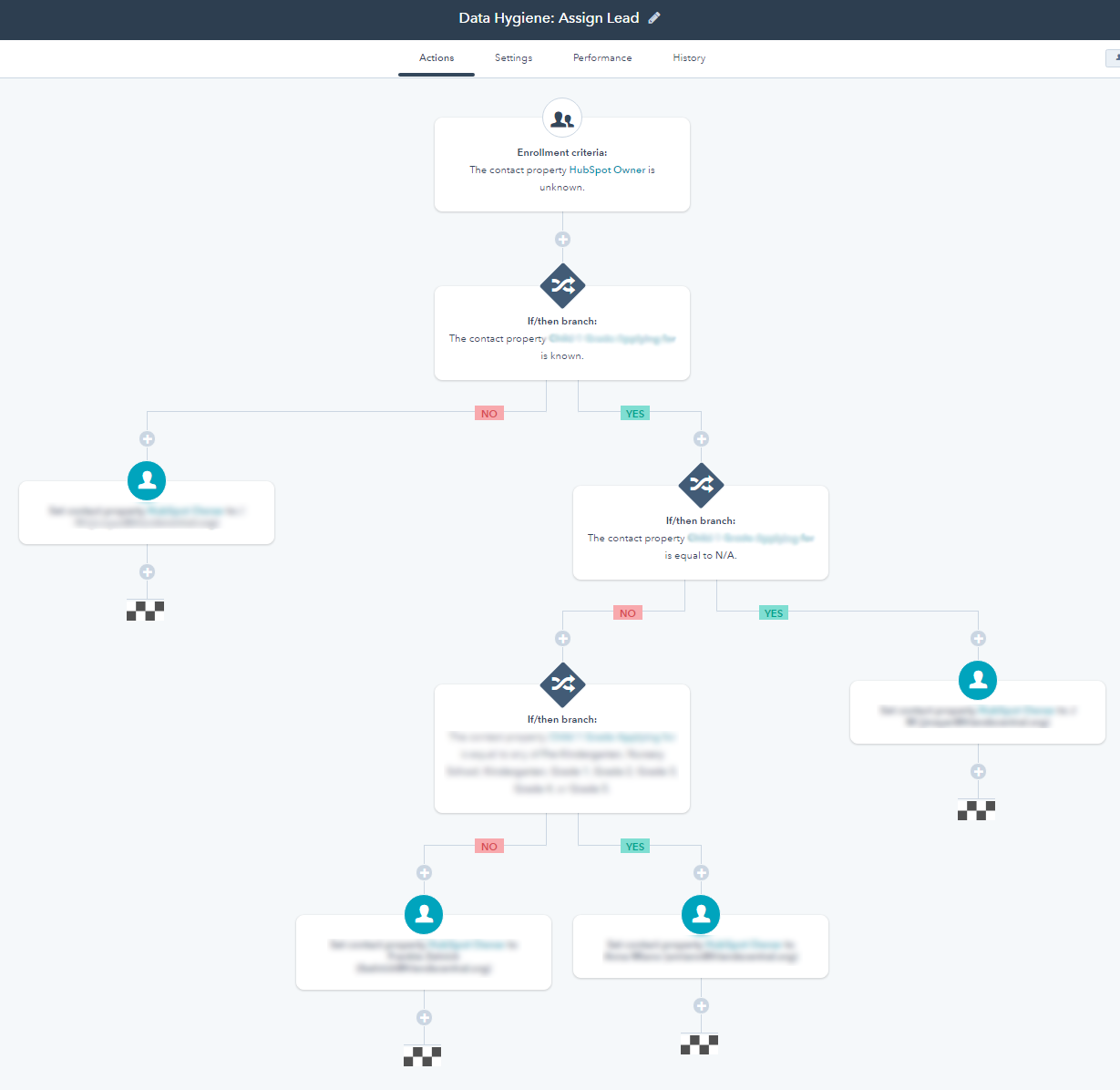
It can take time to master the tool (you'll scale-up more quickly with the help of HubSpot Academy), but once you get a grasp on it, the creative possibilities are endless. You can set up simple email list autoresponders, or build a smart and complex network of rules designed to target specific users with the exact right email, live chat, website experience, and more.
Basically, the workflows tool is automation beyond email, so you can scale your growth and spend less time on repetitive tasks.
2. ManyChat
Marketing automation isn't just about email. Imagine automating some of the more repetitive conversations on other platforms. ManyChat functions as a chat bot that can do just that on Facebook Messenger and through SMS.
A bot can be built in minutes with their templates and easy-to-use interface with drag-and-drop capability. In addition, the information you learn about your users can be synced to your CRM and other tools.
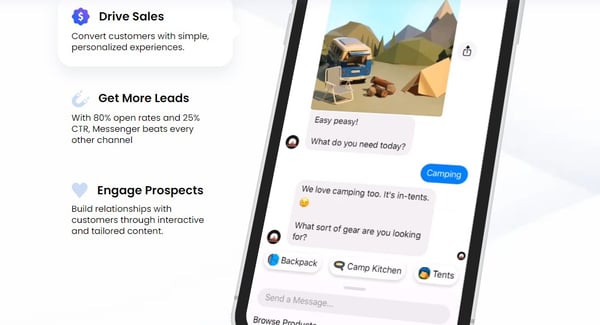
3. Omnisend
Omnisend is an omnichannel marketing automation platform built for ecommerce. Offering powerful automation workflows, you can get started quickly with pre-built templates that keep online merchants in mind.
With Omnisend, you can add several channels within the same automation workflow: email, SMS, Facebook Messenger, push notifications, and more. Omnisend also uses a user-friendly WYSIWYG visual builder and templates which make creating workflows, forms, landing pages, popups, and emails quick and easy.
Omnisend offers a free plan for basic email marketing, and three paid plans with various features that scale across them. However, medium to larger sized merchants will likely get the most out of Omnisend’s channel management features.
4. Ontraport
Ontraport is a business automation software for entrepreneurs, solopreneurs, and small businesses.
While they have a CRM and marketing automation functionality, they also have several other features to run and grow a small business, including but not limited to:
- Email marketing
- Landing pages
- Reporting
- Ecommerce
One of the most valuable things Ontraport offers is their focus on reporting and insights. While some tools can be a bit of a black box, Ontraport gives you a clear look at the performance of your campaigns.
5. SendinBlue
SendInBlue started as a digital agency but ended up building quite a powerful email marketing tool, which, with time, transformed into a well-liked marketing automation software.
They have some advanced features, such as their reporting and lead scoring. Additionally, SendinBlue offers a pretty impressive free plan, which includes basic marketing automation functionality, phone support, and up to 300 emails per day.
You can also run SMS campaigns from SendInBlue.
6. ActiveCampaign
ActiveCampaign is an integrated email marketing, marketing automation, and small business CRM.
The strongest point of ActiveCampaign is their powerful and flexible marketing automation functionality. It's one of the most comprehensive solutions on the market. Their deliverability is rated as one of the top on the market, as well.
This probably isn't a good tool for beginners, or those with low technical capabilities. It takes a bit more time and effort to learn -- but when you do learn the platform, it's pretty powerful.
7. Pardot
Pardot, part of the SalesForce empire, is a cloud automation solution that mostly serves enterprise clients that have the technical resources and time to learn the platform.
They have a ton of features to automate communication to existing contacts, from CRM integration to email marketing, lead nurturing, lead scoring, and an ROI reporting functionality to make sure your campaigns are working.
You can track all interactions on your website and build predictive lead scoring based on the parameters you set. All of this helps improve marketing efficiency and remove wasted time and effort from your sales team.
It's important to note, Pardot is a powerful enterprise, but lacks lead generation functionality and may not be as accessible or affordable for smaller businesses, or entrepreneurs.
8. InfusionSoft
InfusionSoft (now Keap) has been around for a while (15+ years, I believe) and has helped thousands of marketers deliver on leads, revenue, and customer acquisition targets.
They really flourish in the small business and solopreneur crowd, and in my experience, I've noticed they have a pretty sophisticated user base.
You can set up relatively complex decision trees depending on which lead magnet someone signs up for, how many (and which) emails they open and click, or other contact property data.
9. Autopilot
Autopilot is one of the most visually appealing marketing automation solutions on the market.
They make an email marketing, messaging, and automation platform, and they bill themselves as the easiest marketing automation platform to use. As mentioned above, their visual editor is clean, easy-to-understand, and frankly fun to use.
Of course, their platform is typically used for more sophisticated messaging and targeting, but you can also create a simple autoresponder based on a time-sequence.
10. Marketo
Marketo has been around for a while, and was recently acquired by Adobe and incorporated into their enterprise marketing cloud.
The Adobe integration means that, if you use Adobe Analytics for data measurement and Adobe Target for experimentation and personalization, you'll have a powerful enterprise marketing automation and optimization suite.
The tool is typically geared towards enterprise customers -- it's a bit out of range for most small business owners.
11. GetResponse
GetResponse is a marketing automation software that has many different layers and features. They start out very affordably, at around $10 per month (which includes basic autoresponders and a list size of 1,000), but their more expensive plans include powerful features like:
- Email marketing
- CRM
- Landing pages
- Autoresponders
- Ecommerce tools
- List building tools
GetResponse is easy-to-use and you'll typically find good results from the tool, although it works best with the simpler features, like email newsletters. It can become trickier to work with the platform if you plan on implementing complicated conditional logic and marketing automation.
12. Drip
Drip is one of the few marketing automation tools in this list that is primarily focused on e-commerce marketing automation. They provide one of the more "open" platforms, claiming that they play well with "pretty much any marketing strategy you want to put in motion."
Additionally, email is one of their strengths. Some email marketing and automation features include:
- Email Builders
- Automation Workflows
- Multi-channel Marketing
- Email Campaigns
- One-off Emails
They also excel in personalization and analytics. Overall, Drip is a powerful tool for e-commerce marketing automation.
13. Mautic
Mautic is the only open-source marketing automation platform in this list. It's also a relatively new player, only founded in 2014. They've grown quickly, though, and are seemingly picking up steam with high tech companies.
Currently, over 200,000 organizations use Mautic.
There are tons of options for marketing automation software. It's all about choosing the right one for your business purposes, budget, and technical expertise.
Want something incredibly powerful and limitless? It may end up costing more, and taking time and effort to learn. The cheaper options, by comparison, might have too limited a scale. Ultimately, it's a trade-off.
Editor's note: This post was originally published in April 2019 and has been updated for comprehensiveness.
from Marketing https://ift.tt/3gRgyWf
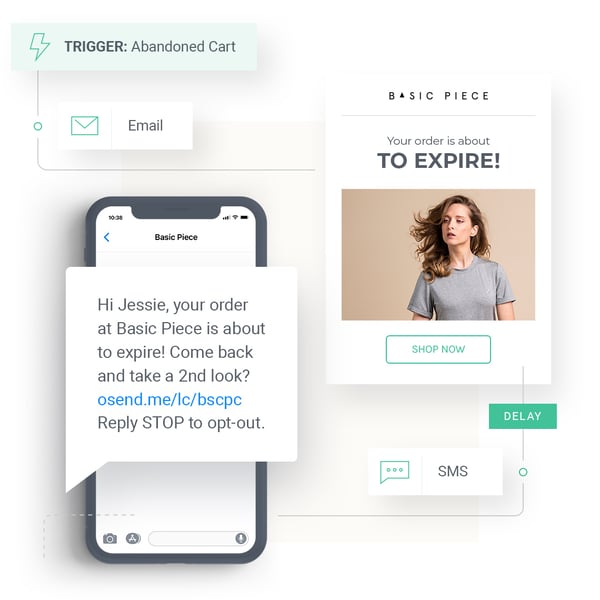
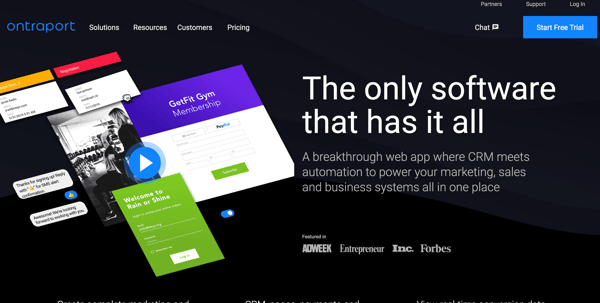
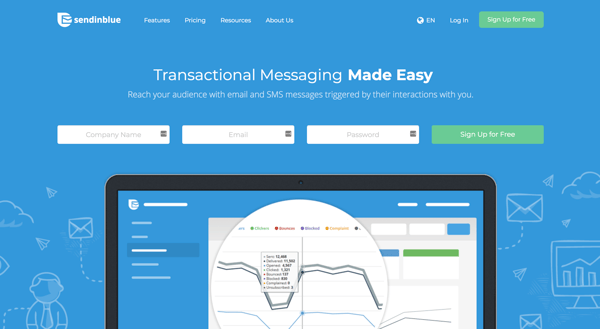
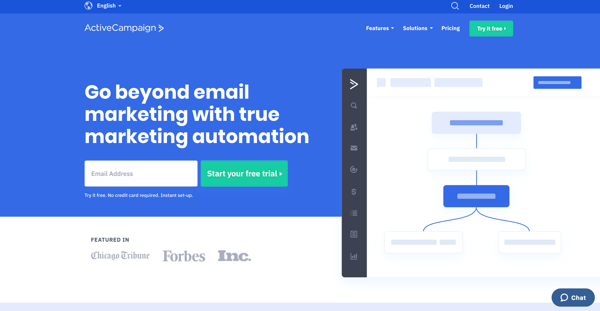
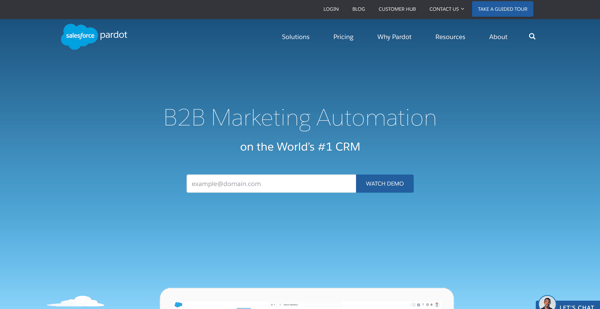
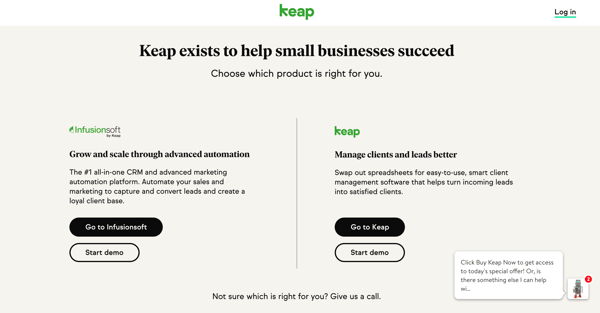
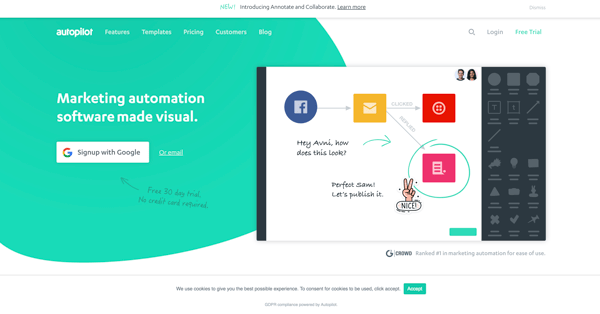
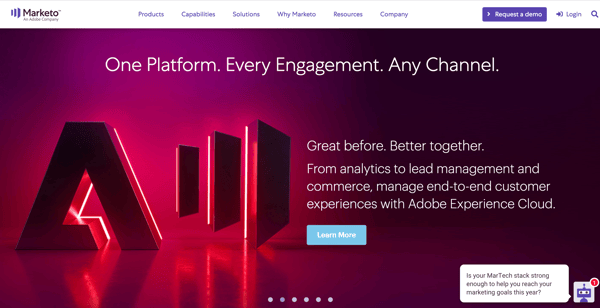
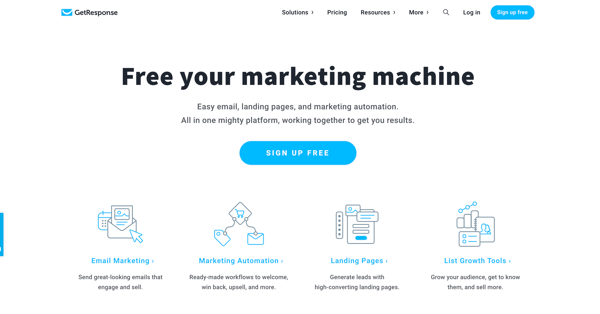
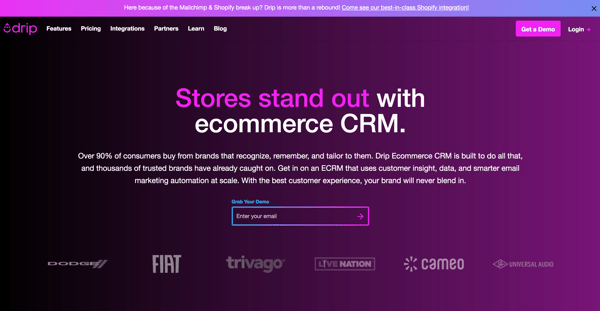
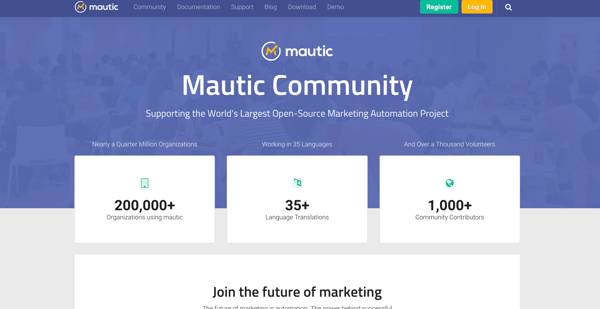

No comments:
Post a Comment